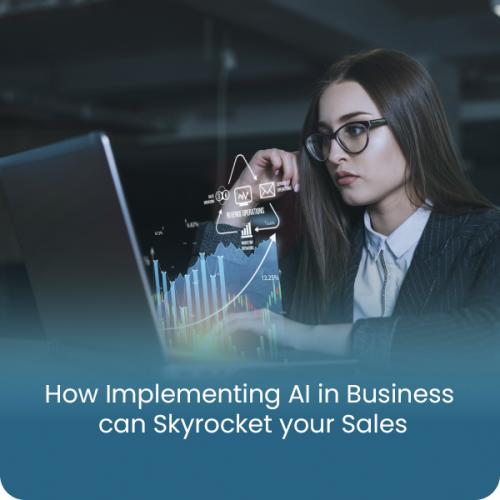MAXIMIZING EFFICIENCY: DEFINING THE SCOPE OF AI IMPLEMENTATION IN YOUR BUSINESS STRATEGY

UNDERSTANDING AI AND ITS BUSINESS APPLICATIONS
AI transcends the traditional boundaries of technology, offering solutions that range from automating mundane tasks to providing deep, actionable insights into customer behaviour. Technologies like machine learning, natural language processing, and computer vision enable businesses to not only streamline operations but also enhance customer engagement.
These technologies are not just tools but transformative agents that can redefine the market standing of a business. To explore the varieties of AI technologies and their apps check our guide on Exploring the Types of Artificial Intelligence.
STRATEGIZING AI IMPLEMENTATION
Identifying the sectors within a business that stand to gain from AI is the first step in a strategic AI implementation. Whether it’s enhancing customer service through AI-powered chatbots or improving supply chain efficiency with predictive analytics, the key lies in aligning AI. The strategic alignment ensures that AI contributes to meaningful growth and value creation. It makes it essential to approach AI implementation with a clear, focused strategy.
DETERMINING THE SCOPE OF AI IN YOUR BUSINESS
Understanding your business’s readiness for AI involves a thorough assessment of existing operations and the establishment of clear, measurable goals for what AI should achieve. It might include improving customer response times, increasing sales through better lead qualification, or enhancing product recommendations. Customizing AI solutions to meet these specific needs ensures not only a smoother integration but also a more impactful contribution to the business’s objectives.
OVERCOMING CHALLENGES IN AI ADOPTION
The path to AI integration is fraught with challenges, from the high costs of initial setup and integration to concerns over data privacy and potential resistance from the workforce. Addressing these concerns requires a multifaceted strategy involving stakeholder education, transparent communication, and the phased adoption of AI technologies. Overcoming these hurdles is crucial for businesses to fully leverage AI’s potential and achieve the desired transformation in their operations. For insights into navigating these challenges, stay tuned for our upcoming piece on breakthroughs in AI development.
Case Studies And Success Stories
Across industries, there are numerous success stories of businesses that have effectively defined and implemented their Artificial Intelligence scope, achieving remarkable improvements in efficiency and customer engagement. For example, a retail company that integrated AI into its customer service operations saw a 50% reduction in response times and a significant increase in customer satisfaction scores. These cases serve not only as proof of AI’s potential but also provide valuable lessons and best practices for businesses looking to embark on their AI journey.
For integrating AI into your business, refer our latest article about the benefits to implement Artificial Intelligence in your website and mobile apps.









Comments